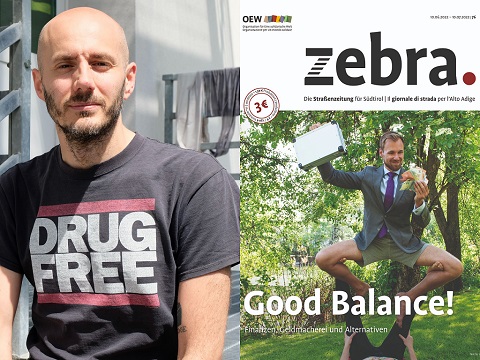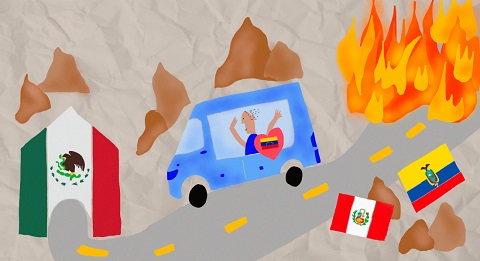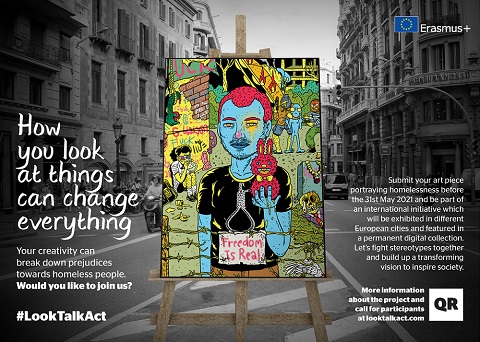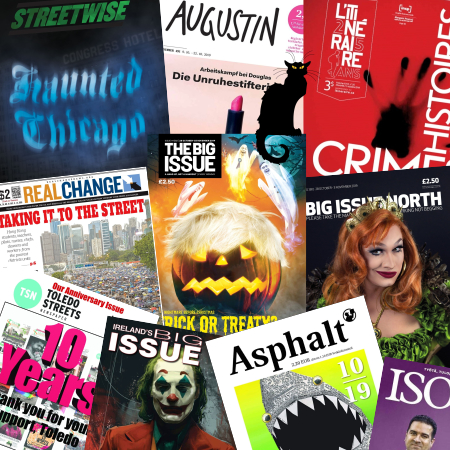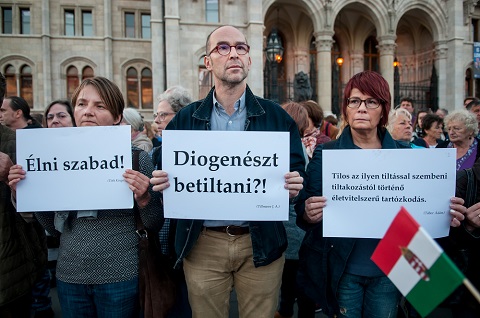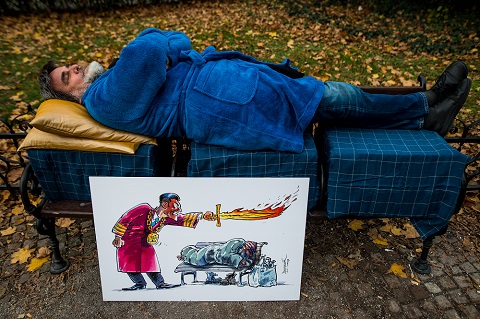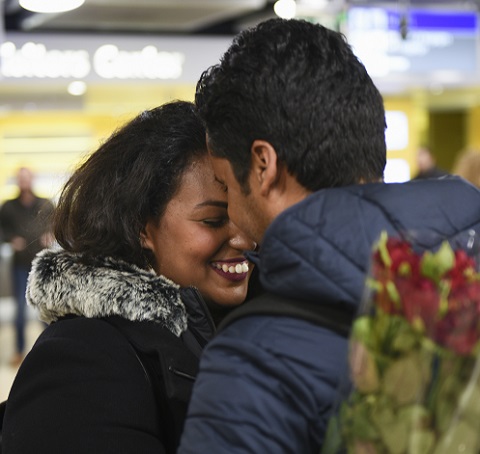By Boldizsár Győri, Fedél Nélkül
I start almost every morning with going through the news. That Thursday morning, when Russia invaded Ukraine, for some reason I didn’t. I didn’t understand why almost everyone was late for class, even the teacher. Everyone came in with a petrified face. I was three years old on 9/11 – I was probably in nursery when I found out what happened in New York. I will forever remember the place and the moment when my Spanish teacher revealed: Russia has attacked Ukraine, ‘ya hay ocho muertos’ – eight victims so far.
I cross by the Eastern Railway Station in Budapest almost every day, where cars with Ukrainian license plates have arrived by the weekend, their regional registration codes clearly showing the path of the line of battle: KA, KI, HH, KX, HM…, ie: Kyiv, Kharkov, Odessa. Arrival of refugees was expected: what we saw on social media and the whispers coming from the border, every rumour, all proved to be true. And immediately, the country moved as one to properly welcome those people who had witnessed the destruction of their homeland within 48 hours.
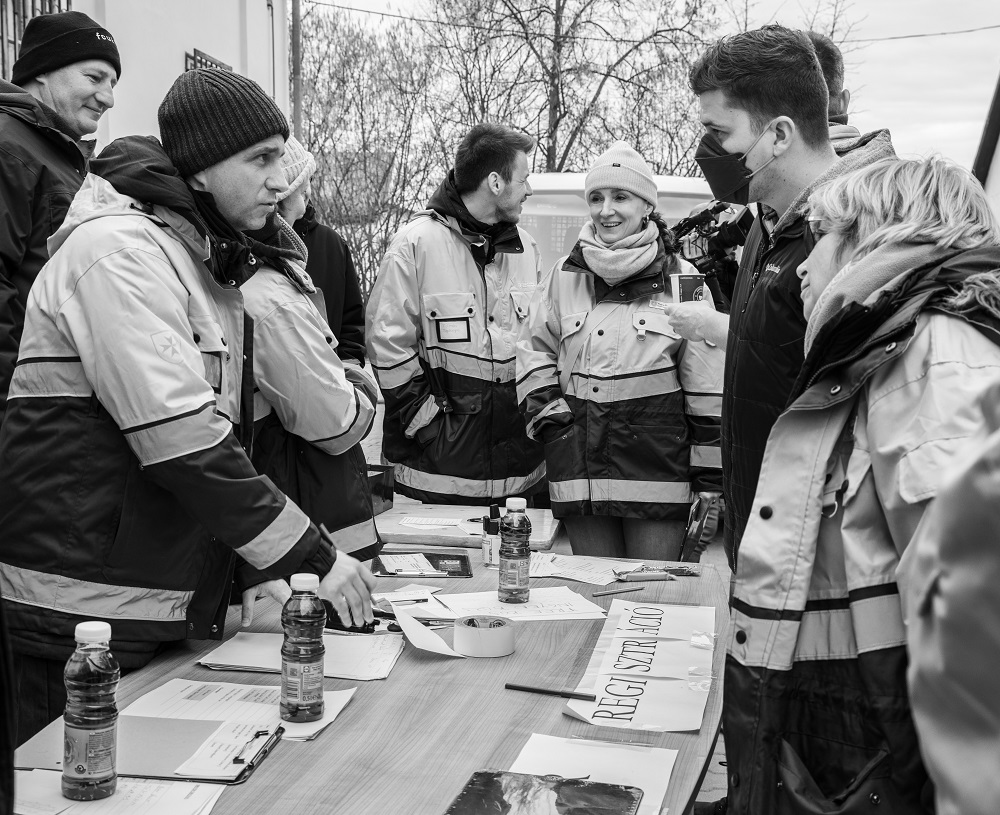
Public transport buses parked in front of the main train stations, where refugees could get warm. At the border, all major aid organisations have set up tents, where those who are coming over receive food, blankets and any kind of help. In the first few days, taxis were replaced by volunteers who would transport the arrivals by car to the capital or to the nearest city or town for free. I took a shipment of aid with the Caritas organisation to the western Ukrainian region of Transcarpathia over the weekend. At the Hungarian side of the border, at one of the crossings, so much food was collected that it was even offered to us, otherwise the sandwiches would have gone bad. There is a line of cars on the other side, as far as the eye can reach, many of which have been frozen due to waiting for so long with the engine stopped in the cold weather. Gasoline is almost sold out, which is why food prices are at a peak – if it can be found at all, road transport doesn’t work, and there were queues already in front of shops and ATMs over the weekend. People’s eyes were glassy and lifeless, children were heartbreakingly obedient. Such help is much needed for someone who waited for several days to cross the border, or travelled the distance from Kyiv to Budapest standing on a crowded train.
Although the government’s Humanitarian Council has been established, its work is still less conspicuous than those NGOs with decades of experience in caring for marginalised social groups. The Budapest Bike Maffia [a local volunteer aid organisation] and the Shelter Foundation have been dealing with feeding and housing the homeless for many years, and both organisations are constantly coordinating the collection of food and its delivery to the refugees.
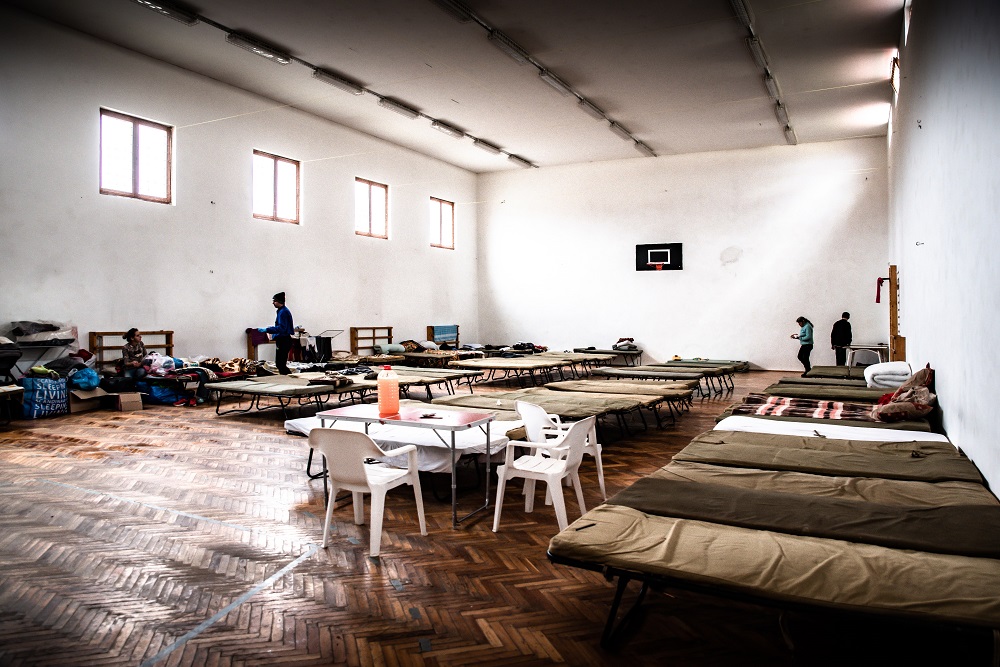
Municipalities also play their part by donating money (in Nagykanizsa), collecting things (in Pécs), or by opening some flats – for example, the Hegyvidék municipality (the 12th district of Budapest) has opened places for 50; the 10th district offered space for 60 people at Lake Balaton; and the city of Szolnok has 200 people at once to accommodate. The municipality of Miskolc is providing refugees a free monthly pass for local public transport. The universities also continuously announce the number of places they can free up and offer: the University of Debrecen has 250 places, and MOME [Moholy-Nagy University of Art and Design] has offered accommodation for 100 refugees. I attend the University of Public Service and live in its dormitory: 28 people came from Kyiv at dawn today – we will do everything to help and hope we are able to make them feel at home with us. Corporate companies have also come into action: szallas.hu [a holiday accommodation site] is compiling a list of the private apartments they offer, and allowing them to be used without charging the usual commissions. Another child protection organisation offered its property at Lake Balaton to some Ukrainian families without question. The meat processing company Kométa said that they are able to hire adult refugees immediately in their plant.
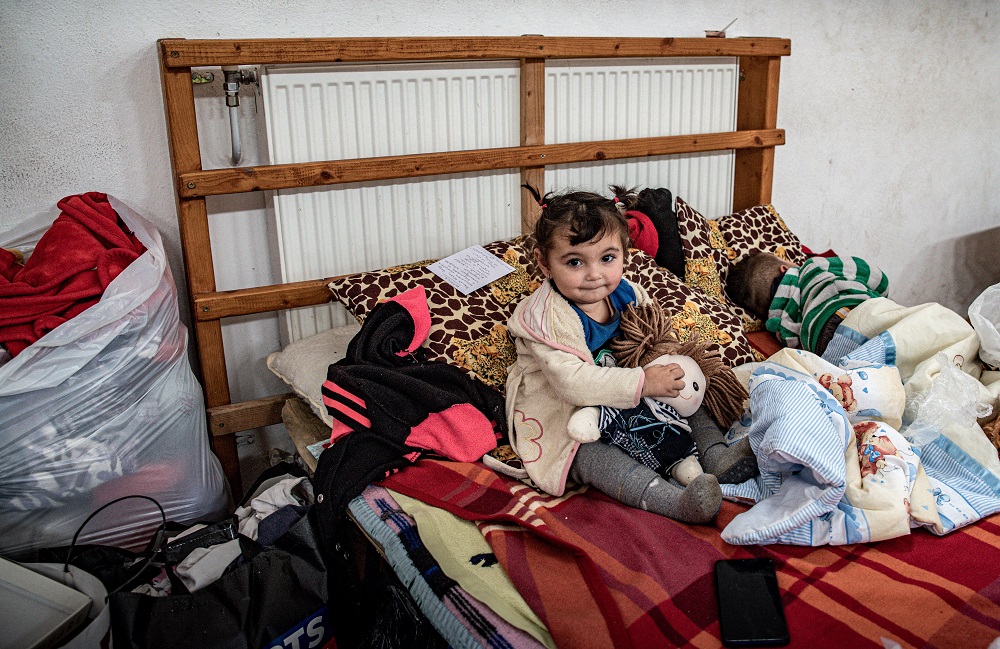
Róbert Kepe, editor-in-chief of this street paper Fedél Nélkül, and experienced in working with marginalised groups like people experiencing homelessness, said about the refugee crisis: “While helping refugees and caring for the homeless may seem like a very similar activity at first glance, it is more complex in reality. Although they are all human, aid workers have quite different problems to solve.
“We don’t speak a common language with most refugees. They have never had to sleep in a shelter; or if they have a problem that requires medical treatment, they have to take a long and tangled path to receive care – this is the case even for Hungarian citizens these days, not only for a foreign, non-EU citizen.”
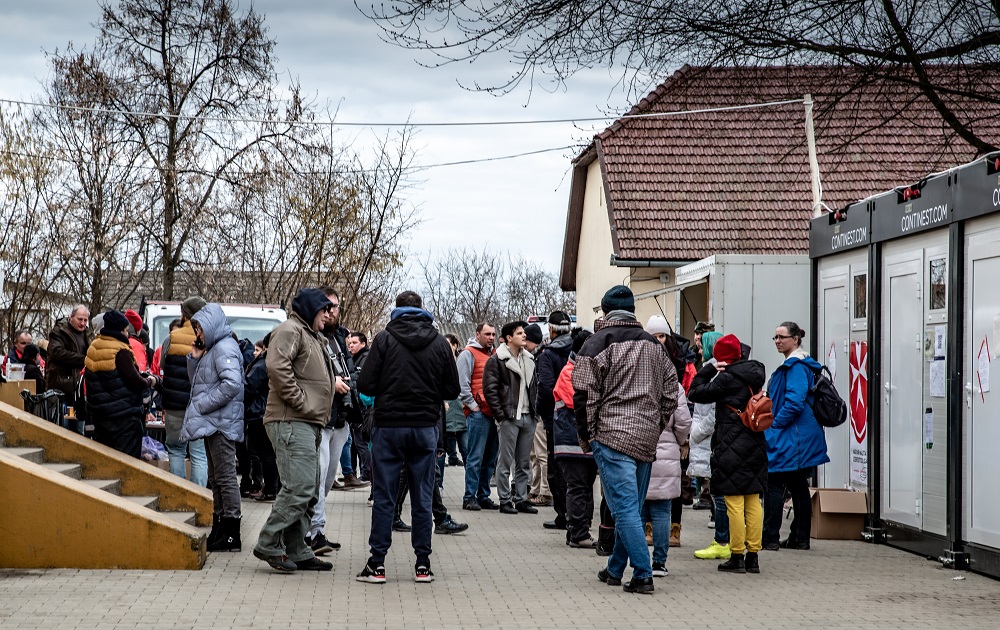
Zoltán Huszár, who is working to help refugees as part of the Budapest Bike Maffia, said: “I started organising a fundraiser on the Thursday morning, immediately as I saw in the news what was happening. This culminated in a gigantic fundraiser on Saturday, during which we collected twenty tons of donations within four hours with the help of thousands of volunteers.
“Our goal was to help in this critical period when there are a lot of civil offerings – in terms of transportation and food – but the larger aid organisations have not yet camped up at the border. The system was already built up around the sixth day, and until that was done, individual and civil offerings had to be channeled through things like this fundraiser. Despite all this, we have not done anything we wouldn’t usually, or would be outside our means. Food collection and delivery is our profile, and this is what we’ve done now.”
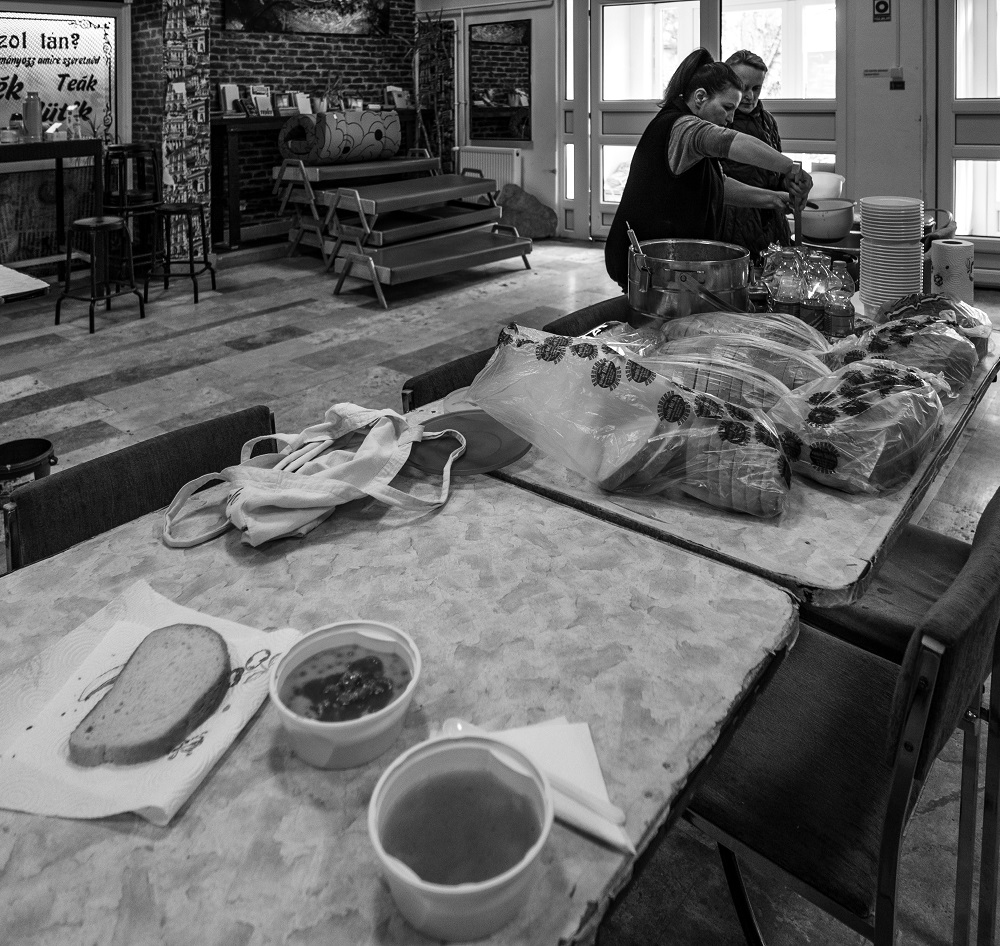
Thanks to the rapid response and excellent cooperation of NGOs and grassroots initiatives, other larger organisations had more time to move to the border and organise the welcoming of refugees. However, the conflict does not seem to be coming to an end. In addition, military analysts expect Ukrainian civilians to suffer unprecedentedly as Russian soldiers surround large cities, resulting in a protracted war, triggering further waves of refugees. Therefore, it is crucial that our motivation to help does not diminish even after the war has been going on for weeks, and the news pages are no longer broadcasting minute by minute. Let us show the world that cooperation is not an exception, but the main rule in central Europe.
Speaking to the International Network of Street Papers about the response in Hungary, Kepe added: “We are really proud that thousands of citizens are going to the border to help with food, clothes and kind words. Dozens of charities – small and large– are working constantly. Local governments, universities, campsites, hotels and many citizens try to offer accommodation. The collection and transportation of donations are running in numerous ways. The whole country has united. And for all that, it is extremely awkward that our central government and political parties do the same things that we are used to: not doing effective work or starting real dialogue, but giving useless declarations. We really hope that the horrors of war will end soon.”
Translated by Bernadett Berkes




